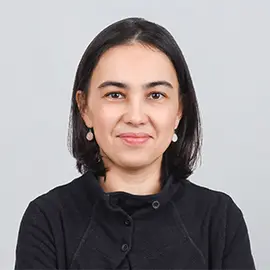Dealing with the violent past in the diaspora
Description
The project explores the way young people of ex-Yugoslav and Turkish-Kurdish origin in Switzerland deal with the history of their origin countries’ violent past and war/conflict-related migratory experiences of their parents and what repercussions these have for various facets of their (post-)migrant lives. It looks into the ways young people engage with the memories and the narratives of violent past (and present) as communicated and practiced within family and the diasporic spaces.
At the center of the project are life-story (narrative-biographic) interviews conducted with young people belonging to the so-called second generation (born and/or raised in Switzerland) from former Yugoslavia (Bosnia) and Turkey. These interviews are complemented by ethnographic fieldwork in diasporic spaces and in the context of young peoples’ engagement in diaspora-related activities thus disclosing the second-generation perspective on migrant organized live. Biographic analysis reveals how homeland’s conflictual past and family migration experience is integrated into own biographic narration, interpreted and made meaningful in the context of socio-cultural positioning, life strategies and personal choices.
By bringing together biographic and ethnographic approaches, this research project reveals what role political past (and present) of the homeland country plays in the way young people of the second-generation:imagine and construct the concept of “home”, “homeland” and negotiate one’s relation to itconstruct and negotiate of the feeling of belonging at the backdrop of public/political discourses surrounding migrant population in Switzerland deal with ethnic, religious and ethno-political divisions and tensions in the diaspora context (migrant organizations/spaces and narratives circulating there) and in interpersonal relationsparticipate in and position themselves towards commemorative practices, discursive framings and reiterations of the homeland conflict/past in the diasporaarticulate civic and political stances and future visions; participate in civic activities related to homeland
This project thus contributes to the question about the long-term and transnational impact of political conflicts and gives insights into the (multiple) positioning of the second-generation youth within various narrative frameworks.
Workshop «Dealing with the Violent Past: Transnational Dimensions and Diasporic Experiences», 23 - 24 September 2021.
This international workshop addresses the question what repercussions experiences of violence and conflict have for members of migrant communities.
Key data
Projectlead
Project team
Hanna Ziegler (Universität Zürich), Mareike Scherer (Universität Zürich)
Project partners
Universität Zürich / Institut für Sozialanthropologie und Empirische Kulturwissenschaft; Tampere University / Tampere Peace Research Institute TAPRI; Zentrum für Osteuropa- und internationale Studien ZOiS
Project status
completed, 11/2017 - 01/2022
Institute/Centre
Institute of Diversity and Social Integration (IVGT)
Funding partner
SNF Ambizione; Landis & Gyr Stiftung; Foundation
Project budget
690'302 CHF
Further documents and links
Publications
-
Biography, belonging and legacies of the Yugoslav disintegration wars in the lives of postmigrant youth in Switzerland
2024 Müller-Suleymanova, Dilyara
-
Remembering and dealing with violent past : diasporic experiences and transnational dimensions
2024 Müller-Suleymanova, Dilyara
-
Shadows of the past : violent conflict and its repercussions for second-generation Bosnians in the diaspora
2023 Müller-Suleymanova, Dilyara
-
«Da fehlt in der Geschichte etwas ...» : (Un)sichtbarkeit und Repräsentation im schulischen Raum aus postmigrantischer Perspektive
2023 Müller-Suleymanova, Dilyara
-
Liebe Eltern, erzählt uns vom Krieg
2022 Müller-Suleymanova, Dilyara
-
“I am something that no longer exists ...” : Yugonostalgia among diaspora youth
2022 Müller-Suleymanova, Dilyara
-
Der lange Schatten des Krieges : Auswirkungen auf junge Menschen
2022 Müller-Suleymanova, Dilyara
-
(Post)-Yugoslav memory travels : national and transnational dimensions
2022 Milivojevic, Mirko; Müller-Suleymanova, Dilyara
-
Memories of violence in the diaspora : transnational and intergenerational dimensions
2021 Müller-Suleymanova, Dilyara
-
The meanings of the difficult past : homeland conflict and second-generation youth in Switzerland
2020 Müller-Suleymanova, Dilyara; Scherer, Mareike
-
“I am something that no longer exists…” : longing for Yugoslavia among the youth of ex-Yugoslav descent in Switzerland
2020 Müller-Suleymanova, Dilyara
-
Engaging with the country of origin and its past amongst second-generation youth of Bosnian descent in Switzerland
2020 Müller-Suleymanova, Dilyara
-
Engaging with the homeland and remembering the past among second generation Bosnians in Switzerland
2019 Müller-Suleymanova, Dilyara
